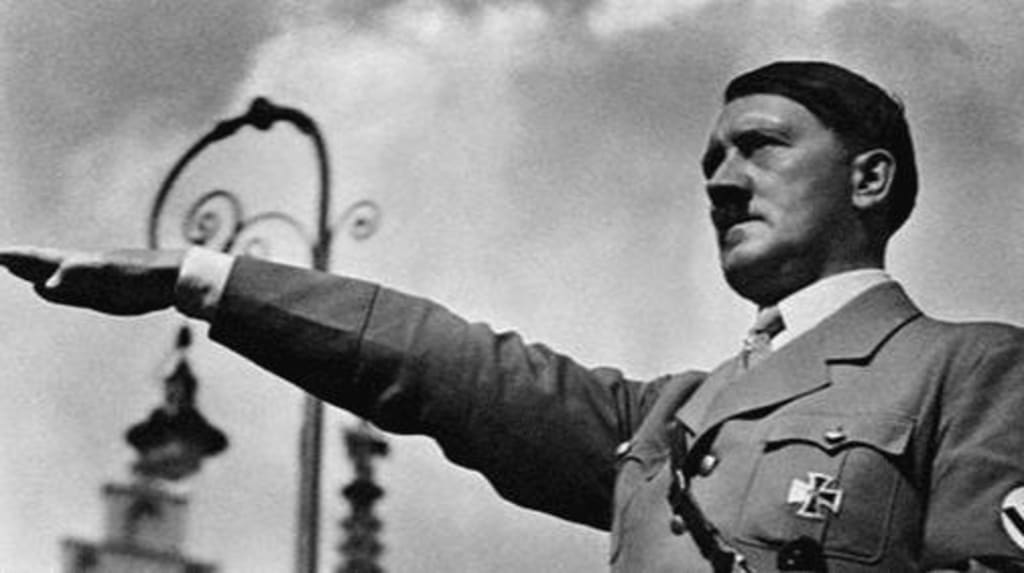When Hitler came to power, Germany was suddenly rich
Where does this money come from?

In the eyes of many people, Hitler was like an enigma.
Before he took office, Germany was in the doldrums, with a large amount of indemnity foreign debts, factories shut down a lot, and the whole country lived in a low atmosphere of grief.
After Hitler took office, Germany seemed to suddenly rise overnight, suddenly revitalized, suddenly let the money on more, the people's day better.
When Hitler was in office, why Germany suddenly had more money, once the Weimar Republic was completely different, where did the money come from at that time?
(a) Jews, a small cash machine for Hitler.
After the outbreak of the economic crisis in the United States in 1929, European countries also followed the disaster, but Germany was not spared.
Around 1931, the unemployment rate in Germany remained high, with the number of unemployed reaching about 5 million, nearly 10% of the total population. Because of the economic crisis, the industry was also in shambles, and many people were in a precarious situation.
At this time, some Jewish tycoons, however, had long sleeves to find various opportunities to enrich themselves in the crisis. This provoked a great deal of resentment from Hitler and others, who, it should be noted, was pure nationalist and had strong prejudices against the Jews.
When Hitler took office in 1933, the bad luck of the Jews began, and those Jews who had money became the target of the Hitlers to cleanup. Thus began the massive anti-Semitic and anti-Semitic actions. The first bad luck was the Jewish civil servants, and then gradually extended to all walks of life, and the wealth of the Jews, began to be plundered by Nazi Germany unless they ran fast enough.
At the end of the day, the Jews were lucky to keep their lives, so who could take care of their wealth?
The wealth of the Jews was gradually eaten by Nazi Germany and became part of the capital for Germany's later all-out war.
(b) Hitler's policy of the right head, so that the German economy quickly changed.
If you look carefully at the rise of Germany before World War II, you will certainly find that the rapid rise of Germany and Hitler's economic policies are very much related. So what did Hitler do in the end?
1, refused to pay reparations, the state centralized control, for a planned recovery of the economy.
Germany after World War I, the industrial system was not destroyed, although the foreign debt, and export goods are subject to an additional 26% tax, but the production capacity is not to be underestimated, just take the steel production for comparison, 1929 steel and iron production than in 1913, respectively, 30% and 38%. What does this mean? Germany's production capacity did not drop significantly, except that a large part of the benefits of the output was taken as compensation.
Germany stopped making reparations in 1931 because of the economic crisis, and when Hitler came to power in 1933, he concentrated his power on planned production and continued to refuse reparations, so Germany's national power rose rapidly because the reparations owed did not have to be repaid. By not paying back the money, naturally, the money in hand increased.
This was one of the important reasons for Germany's rapid rise.
2, the issuance of the national debt, external debt, and increase infrastructure construction, to solve the employment problem.
Infrastructure construction can increase employment, can stimulate domestic demand, after all, the construction of more bridges, and roads, more employment, and consumption.

After Hitler came to power, the construction of some highways and some bridges quickly began, and this move on the German economic recovery role is very large.
To build, where did the money come from? In addition to the existing, is to issue the national debt, and external debt. This solved a large part of Hitler's construction funds.
The massive construction of German infrastructure also pushed back many old factories to restart production and resume work, which in turn started the economic cycle.
Needless to say, Hitler's policy was still very fruitful at that time. Later, Hitler's promise to the German people was fulfilled: milk and bread on the table of every family. This increased Hitler's centripetal force.
However, the economic development, but not reparations, and so on, the British and French countries will be willing? It would not be willing, and sooner or later, a war would have to be fought.
So, Hitler came to a two-legged approach and began to start another dangerous plan: vigorous production of weapons.
3, increase the production of the military industry.
In addition to the above two points, Germany began to increase the inclination of the military industry, breaking the promise once made, and began to build Germany's super armament. From that time on, Hitler's ambition was revealed.
It was the rhythm of revenge, after all, the Treaty of Versailles made the Germans a bit hard when Germany lost 13.5% of its territory and 12.5% of its population, as well as all its overseas colonies (including German East Africa, German South West Africa, Cameroon, Togo, and German New Guinea). In addition, it lost 16 percent of its coal production and many of its steel companies.
The inclination toward the military industry solved part of the employment of Germans and accelerated the functioning of the economy.
At the same time, this move also laid a mind, after all, the military industry's output was so large that it was too difficult to absorb without a war. The inclination of the military industry also created a kind of deformed economic structure in Germany, so Hitler could only take the road to war.
(C) Germany's late wealth: accumulate in the war, and war to feed the war.
If you say, the Germans in the first period through a variety of policy adjustments, through the issuance of the national debt, through foreign debt, through the plunder of some people's wealth, to achieve the purpose of revitalizing the economy, then, after the late war, the German way to accumulate wealth changed, began to plunder, began to war to feed the war.
In every place they fought, the Germans began to plunder various resources such as gold, steel, etc. Holland, Belgium, the Czech Republic, Poland, France, etc., all became the objects of plunder. Aided by the resources of the encroaching countries, a bloated Germany was piled up.
However, later, these countries were liberated one after another, leaving the Germans with much fewer resources to resupply, which to some extent accelerated the decline of Germany in World War II.
All things considered, Germany seemed to be suddenly rich after Hitler came to power for three main reasons: First, the wealth of the Jews gave the Germans some help. Secondly, Hitler refused to continue the reparations and issued national debt, raising foreign debt and concentrating the right to make policy adjustments. Third, in the late war by plundering resources, war to feed the war.
About the Creator
Bar wall
Countries people need science, not scientific development, will certainly become a colony。
Enjoyed the story? Support the Creator.
Subscribe for free to receive all their stories in your feed. You could also pledge your support or give them a one-off tip, letting them know you appreciate their work.






Comments
There are no comments for this story
Be the first to respond and start the conversation.